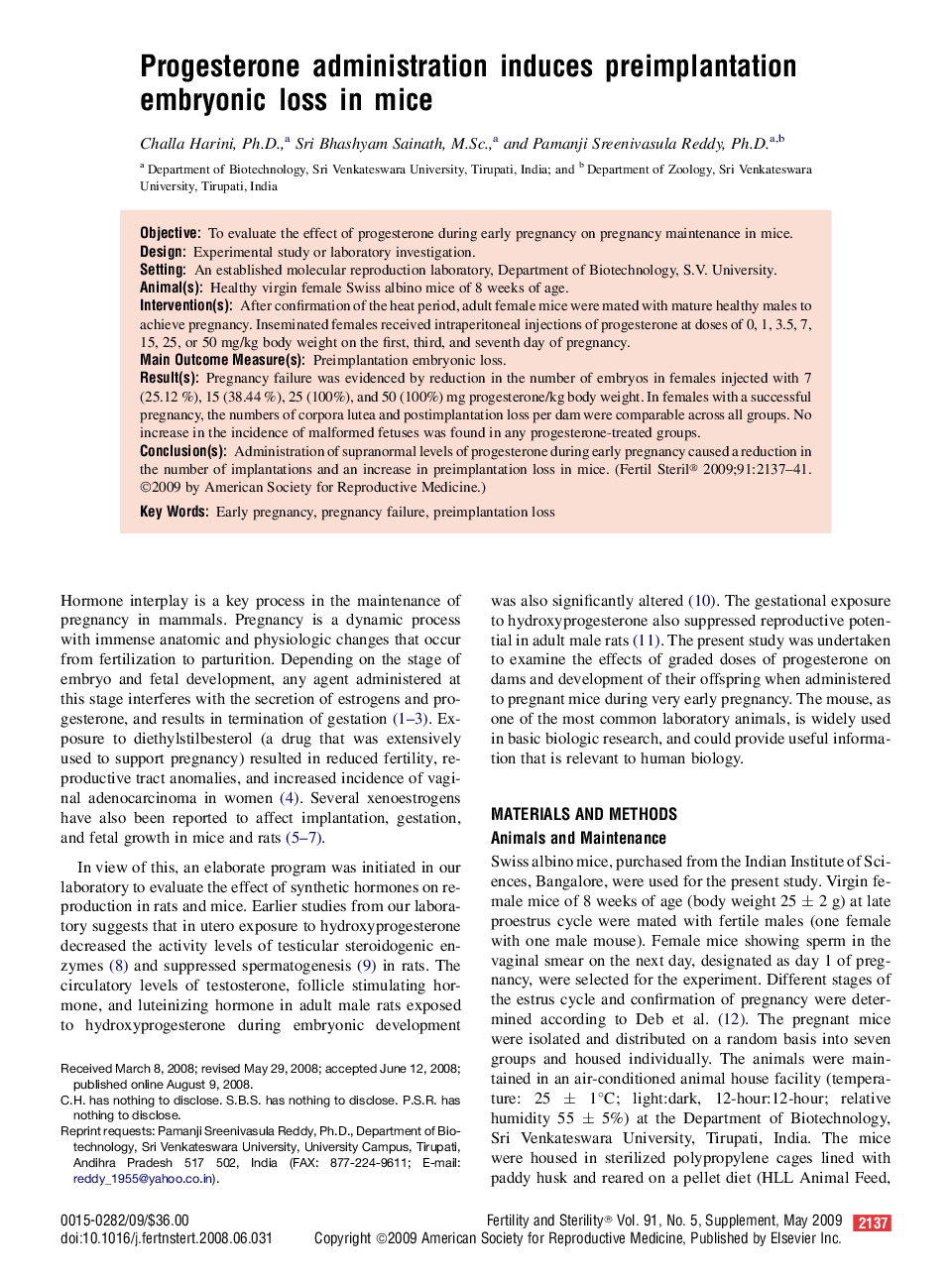| Article ID | Journal | Published Year | Pages | File Type |
|---|---|---|---|---|
| 3934456 | Fertility and Sterility | 2009 | 5 Pages |
ObjectiveTo evaluate the effect of progesterone during early pregnancy on pregnancy maintenance in mice.DesignExperimental study or laboratory investigation.SettingAn established molecular reproduction laboratory, Department of Biotechnology, S.V. University.Animal(s)Healthy virgin female Swiss albino mice of 8 weeks of age.Intervention(s)After confirmation of the heat period, adult female mice were mated with mature healthy males to achieve pregnancy. Inseminated females received intraperitoneal injections of progesterone at doses of 0, 1, 3.5, 7, 15, 25, or 50 mg/kg body weight on the first, third, and seventh day of pregnancy.Main Outcome Measure(s)Preimplantation embryonic loss.Result(s)Pregnancy failure was evidenced by reduction in the number of embryos in females injected with 7 (25.12 %), 15 (38.44 %), 25 (100%), and 50 (100%) mg progesterone/kg body weight. In females with a successful pregnancy, the numbers of corpora lutea and postimplantation loss per dam were comparable across all groups. No increase in the incidence of malformed fetuses was found in any progesterone-treated groups.Conclusion(s)Administration of supranormal levels of progesterone during early pregnancy caused a reduction in the number of implantations and an increase in preimplantation loss in mice.
